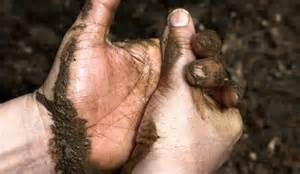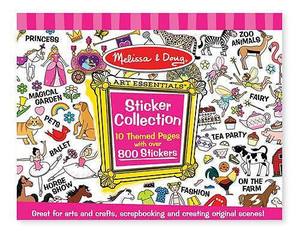Prior Knowledge – How Past Experiences Help Your Child Learn More
Prior knowledge is like gold in the bank, as far as your child’s learning is concerned. And it’s a smart parent who mines that gold at every opportunity.
What is prior knowledge? Well, it’s what your child already knows, and it’s made up of sights, sounds, smells, conversations. Everything, really, that is already in your kid’s brain.
How can prior knowledge help your child learn more?
Remember the Biblical Parable of the Talents? In education, it’s known as the “The Matthew Effect” (from Matthew 25: 14-30).
The story goes like this: A wealthy master went away and left his three servants in charge of his affairs. He gave each of them a certain amount of money, according to their ability. Two of the servants went out and invested what they were given. They made a good return. The third buried his allotment.

When the boss returned, he rewarded the servants who made more with what they had. He punished the guy who had nothing to show but a pile of dirt.
Here’s how the concept applies to your child’s ability to learn.
Say you read your preschooler a story. He hears new words. The story’s context gives meaning to those new words. Pretend the story is about the wind. “On some days it’s a gusty wind, nipping at your nose.”

The child sees an illustration of blustery wind, whipping through the air and scattering leaves. A little boy in the picture had his hat blown off. His nose and cheeks are red.
Now, you – the reader – have a choice. You can hurry through the book. Or, take time to talk about any new vocabulary and ideas that crop up and help your child assimilate them into his prior knowledge
Take the word gusty.
Has he heard it before? Maybe so. Maybe he already has some prior knowledge of the word. And so you ask, “Remember how gusty the wind was when we went to the lake?”
After reading, jot the words gust and gusty on a post-it and stick the note on the fridge. Use the words in conversation several times over the next few days.
“Wow! Did you feel that big gust of wind?”
“The wind is too gusty to go out without a hat.”
“A strong gust of wind blew my grocery list right out of my hand!”
So what are you accomplishing with all this extra work you’ve just given yourself?
You are helping your child make deeper connections about a concept that he will be able carry into future experiences. And the next time he encounters strong wind, or a reference to strong wind, guess what he has in his back pocket?
On a recent visit to see my son and his family, I took along a large sticker book for their younger one, who turned two the day after I arrived. A gift from her auntie.
The book was huge. As big as my aging laptop. And its wonderfulness was not lost on my four-year-old grandson. He couldn’t wait to look at it, and I had to release the urge to rush out and buy one for him, too. (Being the unbirthday child can be brutal, but I did bring gifts for both of them. Frankly, I had no idea sticker books held such fascination for children.)
He waited until his sister went down for her nap, and then asked if I would look at it with him. We climbed up on the guest bed and lay on our tummies. Then we opened the much desired book.
Each page had a new category of animals, people, vehicles –all sorts of things. And he wanted to look at everything. And name everything.
We came to a page with ballerinas – something in my grandson’s prior knowledge bank: His auntie is a ballet dancer. 
But there was something else on the page that caught his eye. Flowers in bunches. I explained why they were on that page. “After Auntie dances on the stage, and everybody claps (sound effects here), we give her a flowers. It’s called a bouquet. A bouquet of flowers!”
My grandson thought about this, and after a few seconds, his face filled with absolute knowing. “Hey, Mimi!” he said, wiggling around and rubbing his hands excitedly, “Mama had a bouquet at Uncle’s wedding!”
“Yes! She did! Mama had a bouquet at Uncle’s wedding.”
(The wedding took place last summer and the experience is still fresh in his mind. He was the ring bearer, his sister the flower girl, his father the best man, and his mother one of the bride’s maids!)
Over the course of the next few days, I used the word bouquet several times. He started using it, too. And I knew that he understood its meaning precisely.
My grandson was able to understand the word bouquet in the context of ballet because of his auntie, and now the with new sticker book, he expanded his knowledge even further, relating bouquets to his past experience at the wedding. He made more with what he had. It was the Matthew Effect in action.
Before the sticker book, I don’t think he knew the word for an arrangement of flowers. But now he does. And he will take that word into his experiences from now on. Four years from now he won’t have to guess at the meaning when he reads a sentence such as, “Annie smelled the bouquet.”
The word bouquet is French, of course, and he may need help pronouncing it. But since he now “owns” the word, he won’t be inclined to guess at its meaning. He’ll be able to see the flowers in his mind.
To truly understand what text is saying, the reader needs to be able to visualize it. Instead of skipping words and missing out on the meaning – and possibly the meaning of entire sentences and paragraphs, a child with substantial word meaning skills will understand what’s going on. He’ll be less likely to make mistakes in answering comprehension questions, and more likely to read for pleasure.
My grandson can visualize elk, cactus, tortillas. A flood, a bi-plane, a chihuahua, and so many more things he’s experienced. Now he can visualize a bouquet. The more things the better. And the more hands-on, the better.
I love hearing children apply prior knowledge to something new. For me, it’s a “cha-ching!” moment. I imagine money funneling into a brain-bank.
But it won’t happen if we don’t make time to talk about these things. Kids clam up if they perceive that we aren’t interested. And if we stop them often enough for lack of time, they quit wanting to tell us.
As a parent, you can help your child become the servant who receives the biggest reward. Talk about their prior knowledge. Relate it to what is happening now, today. And watch them grow. FFG






Leave a Reply